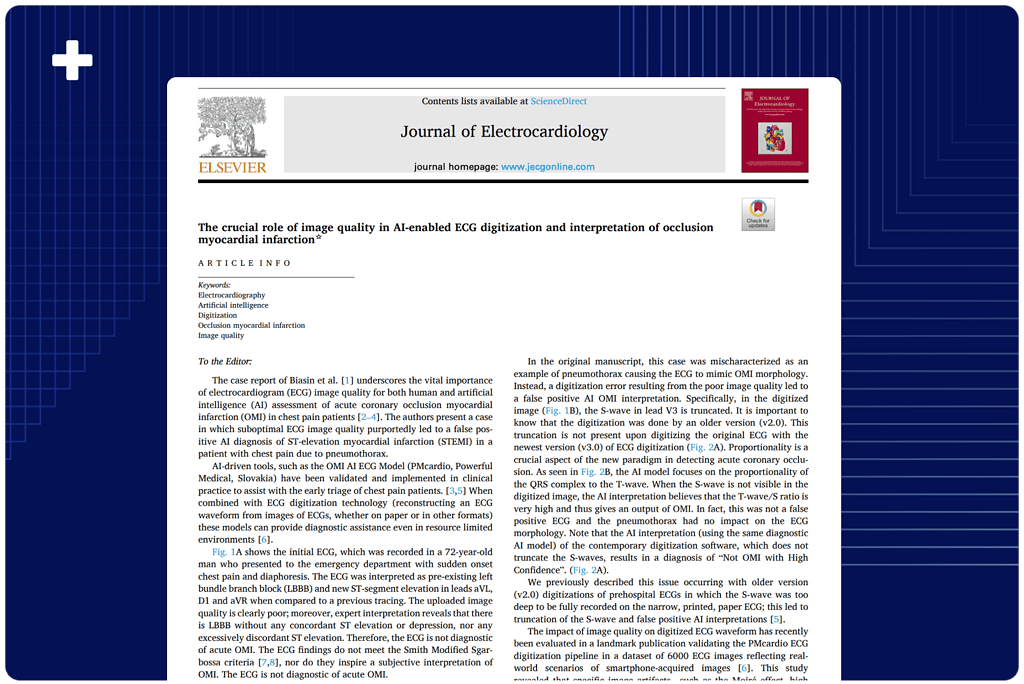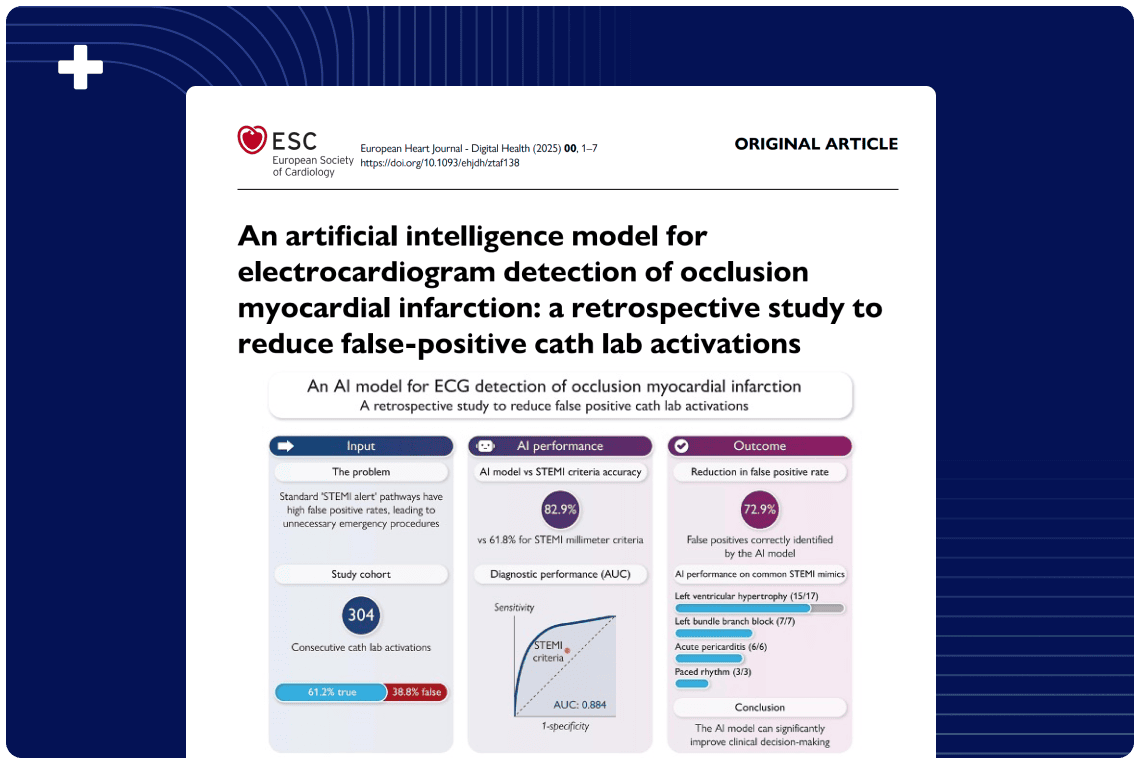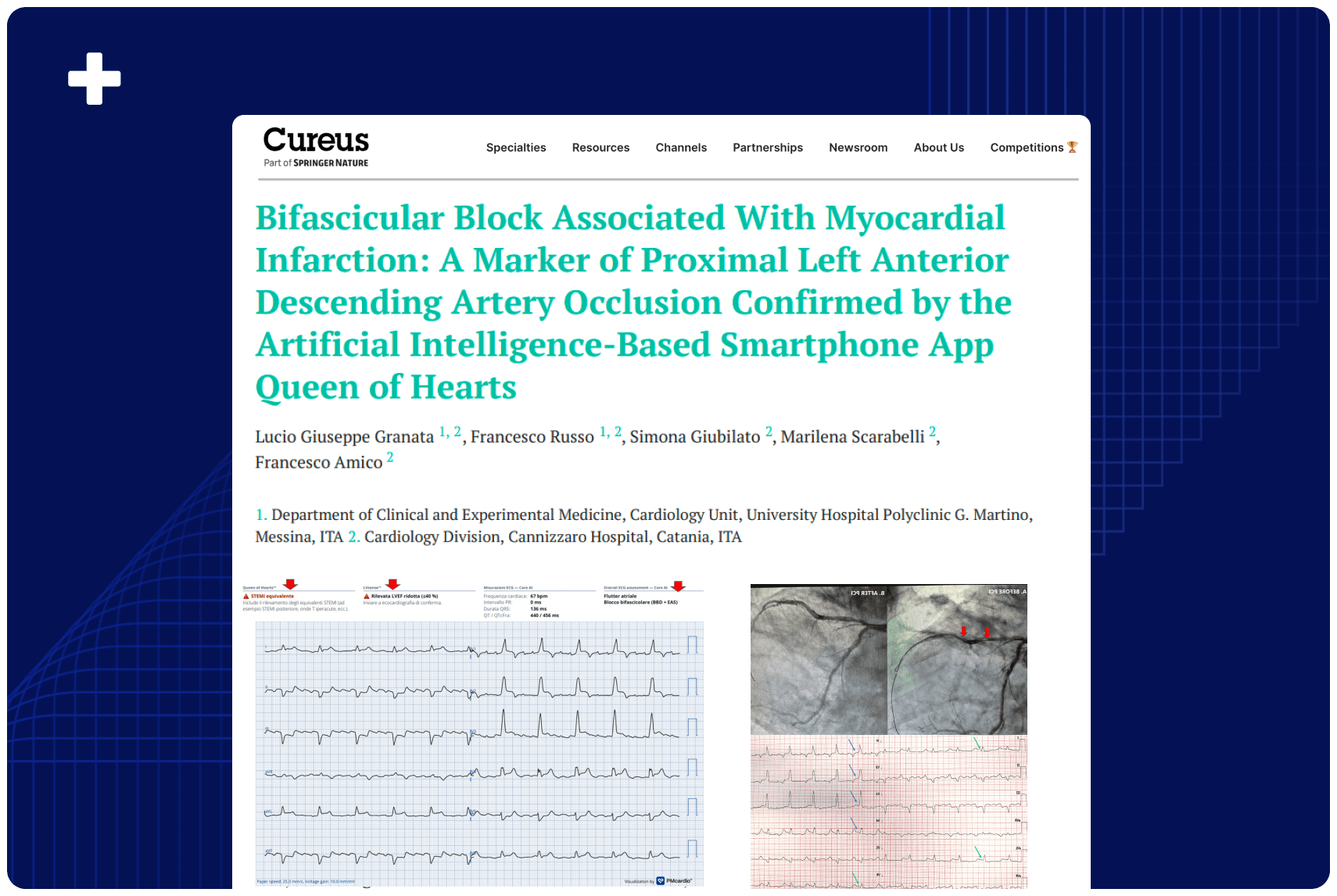Overview:
The effectiveness of AI-ECG tools depends on the quality of input data—poor ECG image quality can lead to critical misdiagnoses. This case shows how a low-quality scan triggered a false STEMI alert, later corrected with improved digitization. It underscores the importance of ensuring minimally acceptable image quality, as even advanced tools can’t fully correct severe distortions.
Published In: Journal of Electrocardiology
Date of Publication: January 10, 2025
Highlights
- Acceptable digitization of ECG images requires a minimal quality of input
- Contemporary digitization by the PMcardio digitization software can correct many, but not all, distortions and deletions
- Proportionality between QRS and ST/T is crucial; truncation of any part of the QRS or ST/T distorts these proportions.
Authors: Robert Herman, MD, PhD; Stephen W. Smith, MD
















